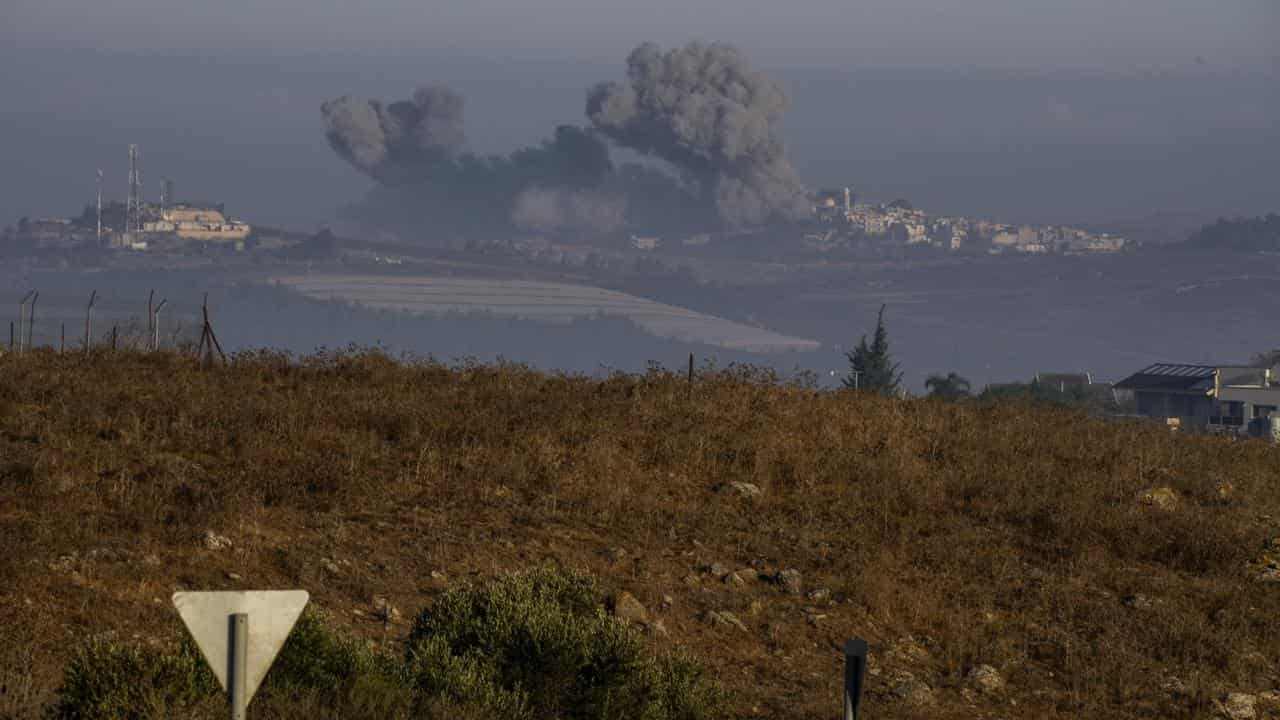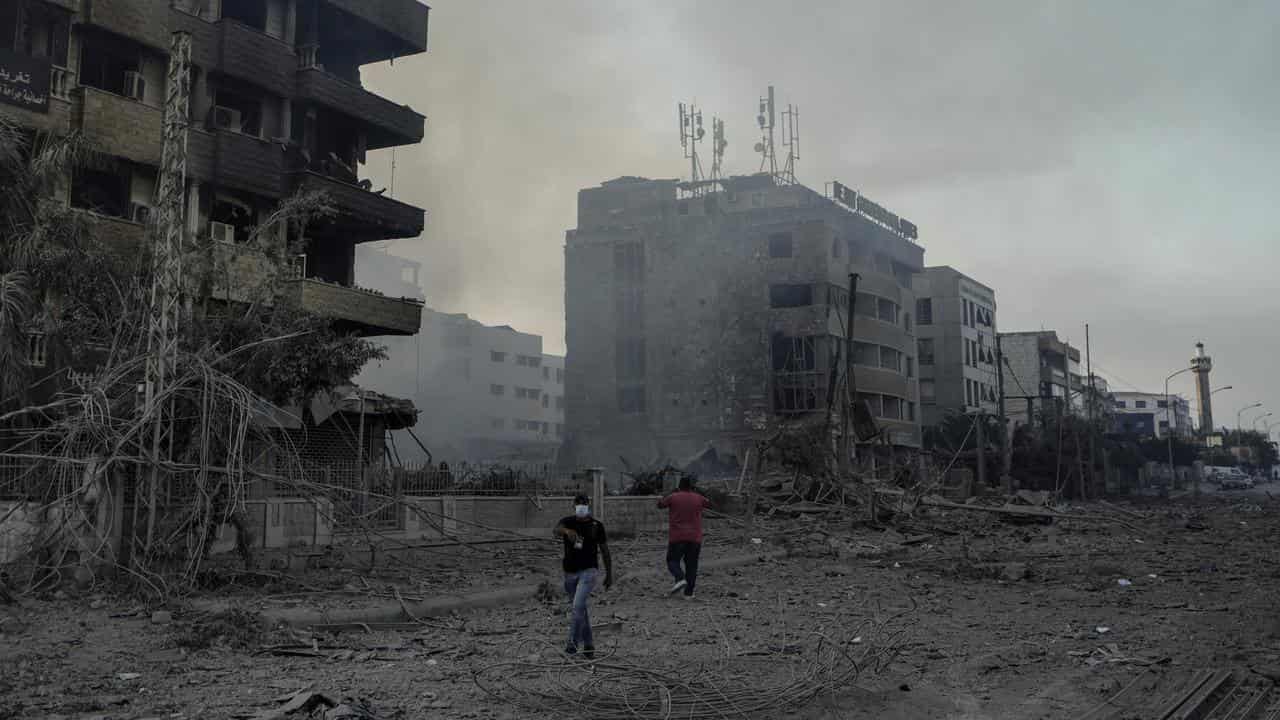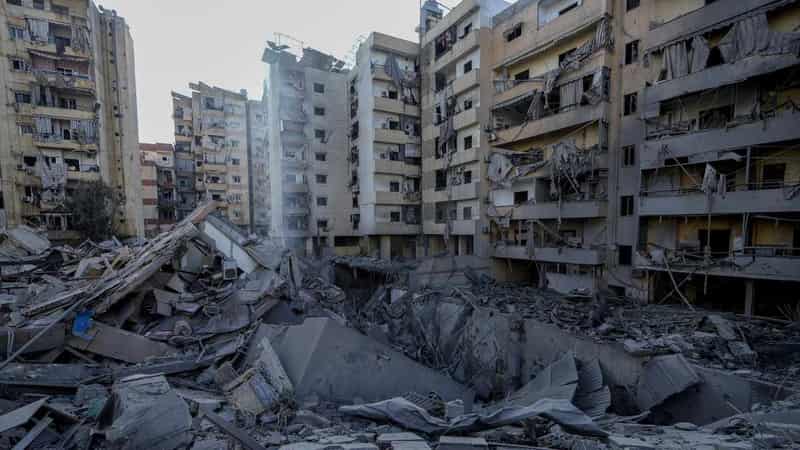
Massive consecutive strikes have hit Beirut's southern suburbs, eyewitnesses say, sending booms across the Lebanese capital and sparking flashes of red and white for almost 30 minutes visible from several kilometres away.
Israel said on Sunday its air force had "conducted a series of targeted strikes on a number of weapons storage facilities and terrorist infrastructure sites belonging to the Hezbollah terrorist organisation in the area of Beirut".
The Israeli military said that before the strike, it took steps "to mitigate the risk of harming civilians, including advancing warnings to the population in the area".
For days, Israel has bombed Beirut suburbs considered strongholds for the Iran-backed armed group, killing its leader Sayyed Hassan Nasrallah, and possibly his potential successor.
A Lebanese security source said on Saturday that Hashem Safieddine, the potential successor, had been out of contact since Friday after an Israeli air strike near the city's international airport that was reported to have targeted him.
The Israeli military said it eliminated Nasrallah in a strike on the group's central command headquarters in Beirut on September 27.
Hezbollah confirmed he had been killed.
Lebanese security sources said Israeli strikes since Friday on Dahiyeh, a residential area and Hezbollah stronghold south of central Beirut, have kept rescue workers from scouring the site of Thursday night's attack.
Hezbollah has not commented on Safieddine, whose loss would be another blow to the group and its patron Iran.
Israeli strikes across the region have devastated Hezbollah's leadership.
Israel has been expanding its actions in Lebanon, making its first strike in the northern city of Tripoli on Saturday, a Lebanese security official said.

Before the recent upsurge, exchanges of fire between Israel and Hezbollah had been mostly limited to the Israel-Lebanon border area, in parallel to Israel's year-old war in Gaza against the Palestinian group Hamas.
Israeli military spokesperson Rear Admiral Daniel Hagari said on Saturday that Israel had killed 440 Hezbollah fighters in its ground operations in southern Lebanon and destroyed 2000 Hezbollah targets.
Hezbollah has not released death tolls.
Israel says it stepped up its assault on Hezbollah to enable the safe return of tens of thousands of citizens to homes in northern Israel, bombarded by the group since October 8, 2023.
Israeli authorities said on Saturday that nine Israeli soldiers had been killed in southern Lebanon so far.
The Israeli assault has also killed hundreds of ordinary Lebanese, Lebanese officials say, and forced 1.2 million people - almost a quarter of the population - from their homes.
The Lebanese security official told Reuters that Saturday's strike on a Palestinian refugee camp in Tripoli killed a member of Hamas, his wife and two children.
Hamas' armed wing, Al-Qassam brigades on Saturday confirmed the death of two of its fighters, including one of its leaders, Saeed Atallah, who was killed in Tripoli.

The Israeli military said in a statement that it had killed two Hamas members operating in Lebanon, but did not say whether they had been in Tripoli, a Sunni Muslim-majority port city also targeted during a 2006 war with Hezbollah.
In northern Israel, air raid sirens sounded on Sunday after sirens the day before had sent people running for shelters amid rocket fire from Lebanon.
Hezbollah said on Saturday it had fired missiles at what it called "ATA company for military industries near Sakhnin base", close to Haifa.
The Israeli army said two projectiles had crossed from Lebanon, one of which was intercepted while the other landed but caused no damage.
Israel on Monday will mark the first anniversary of Hamas' attack on southern Israel, in which 1200 people were killed and about 250 taken hostage, according to Israeli tallies.
Israel's assault on Gaza since the October 7 attack has killed almost 42,000 Palestinians, according to Gaza's health ministry, and displaced almost all the enclave's 2.3 million people.
Iran, which backs both Hezbollah and Hamas and which has lost key commanders of its elite Revolutionary Guards Corps to Israeli air strikes this year, launched ballistic missiles at Israel on Tuesday.
While the strikes did little damage, Israel has been weighing options for its response.
Oil prices have risen on the possibility of an Israeli attack on Iranian oil facilities.









